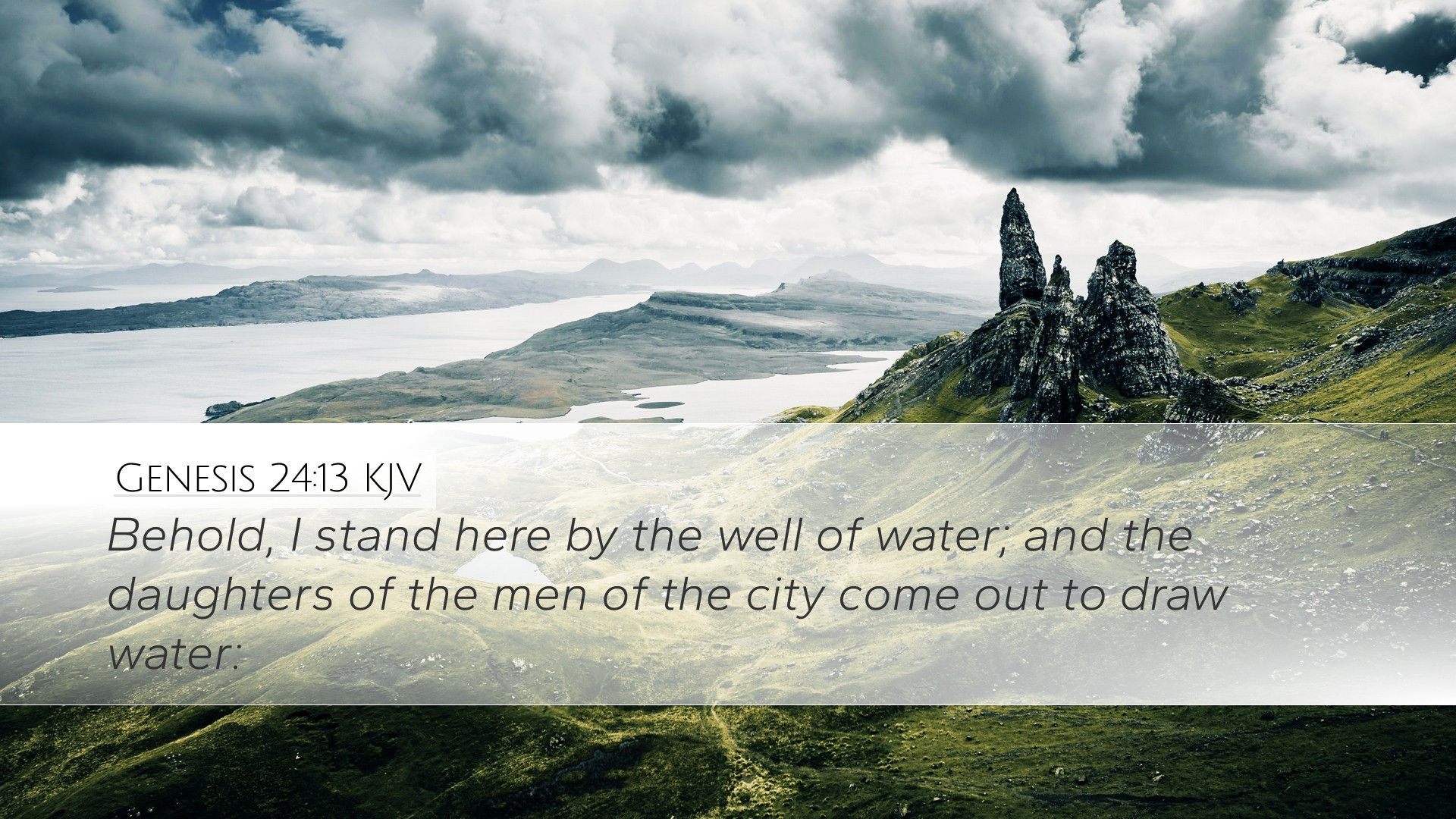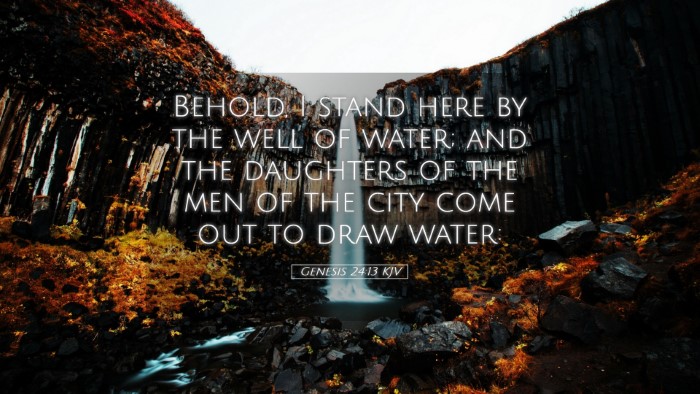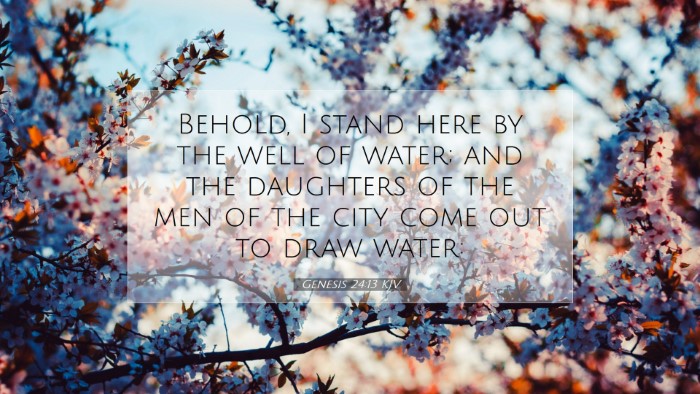Commentary on Genesis 24:13
Verse: "Behold, I stand here by the well of water; and the daughters of the men of the city come out to draw water."
Introduction
Genesis 24:13 presents a significant moment in the narrative of Isaac and Rebekah's marriage. This verse is a part of the larger account wherein Abraham's servant seeks a bride for Isaac. It demonstrates divine providence, the importance of prayer, and the unfolding of God's plan through seemingly mundane events.
Contextual Background
The backdrop of this verse is critical for understanding its implications. Abraham, having been commanded by God to leave his homeland, desires to ensure that his son Isaac does not marry a Canaanite woman. Instead, he sends his servant back to his own family to find a suitable wife, which highlights themes of covenant fidelity and the importance of maintaining a godly lineage.
Public Domain Commentary Insights
- Matthew Henry: Henry notes the significance of the servant's faithfulness and the prayerful approach he adopts before embarking on his mission. The well serves as a focal point not only for physical sustenance but also as a metaphor for seeking divine guidance. He indicates that the servant's standing by the well signifies readiness and expectation for God to move.
- Albert Barnes: Barnes provides a meticulous analysis of the setting. He emphasizes that the well is a common place of gathering, symbolizing communal life and potential connections. The act of the daughters coming to the well illustrates the intersectionality of social customs and divine orchestration in the unfolding of God's plan for Isaac and Rebekah’s union.
- Adam Clarke: Clarke draws attention to the concept of God's providence. He argues that the servant's specific request for a sign demonstrates his reliance on God’s direction. Clarke implies that by positioning himself at the well, the servant places himself in a position to witness divine action and revelation, suggesting a parallel to the reliance on God in all facets of life.
Theological Themes
Several theological themes emerge from Genesis 24:13 that are relevant for pastors, students, and scholars alike:
- Divine Providence: The verse encapsulates the theme of God’s providential care in orchestrating the events surrounding Isaac’s future. The servant’s positioning at the well symbolizes human anticipation in God’s unfolding plan.
- Importance of Prayer: The act of standing by the well suggests a posture of waiting and prayerfulness. The servant exemplifies the importance of seeking God’s will and guidance through prayer in critical decisions.
- Covenantal Fidelity: Abraham’s insistence on finding a wife from his own people emphasizes the commitment to covenantal relationships, which is a recurring theme throughout the Bible. This reflects God’s desire for His people to marry within the faith to preserve the integrity of His covenant.
- Social and Cultural Context: The cultural practice of women drawing water is highlighted, serving as an illustration of everyday life in ancient Near Eastern society. This context enriches our understanding of the narrative and underscores the significance of the servant's task.
Application for Today
This verse holds contemporary relevance in several ways:
- Guidance in Decisions: Just as the servant sought divine guidance in a significant decision, modern readers are encouraged to seek God’s direction through prayer when faced with critical life choices.
- Expectant Faith: The emphasis on waiting for God's answer fosters a spirit of expectant faith. Believers are called to trust in God’s timely provision amidst uncertainties.
- Communal Relationships: The relational dynamics observed at the well invite reflection on the importance of community in seeking God’s will. It can be a reminder to engage with our community as we seek to discern God’s purpose for our lives.
Conclusion
Genesis 24:13 is more than just a historical account; it is a rich narrative that invites us into a deeper understanding of God’s workings through human actions. By standing by the well, the servant epitomizes readiness and dependence on divine guidance, serving both a practical and metaphorical purpose in his search for Isaac’s bride. The insights from public domain commentaries enrich our interpretation, offering theological depth and practical applications for believers today.


